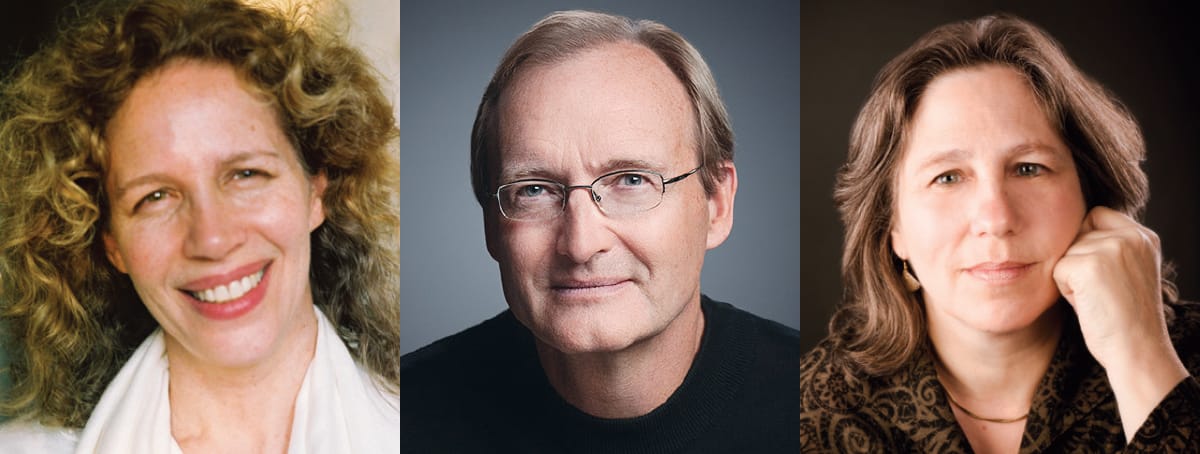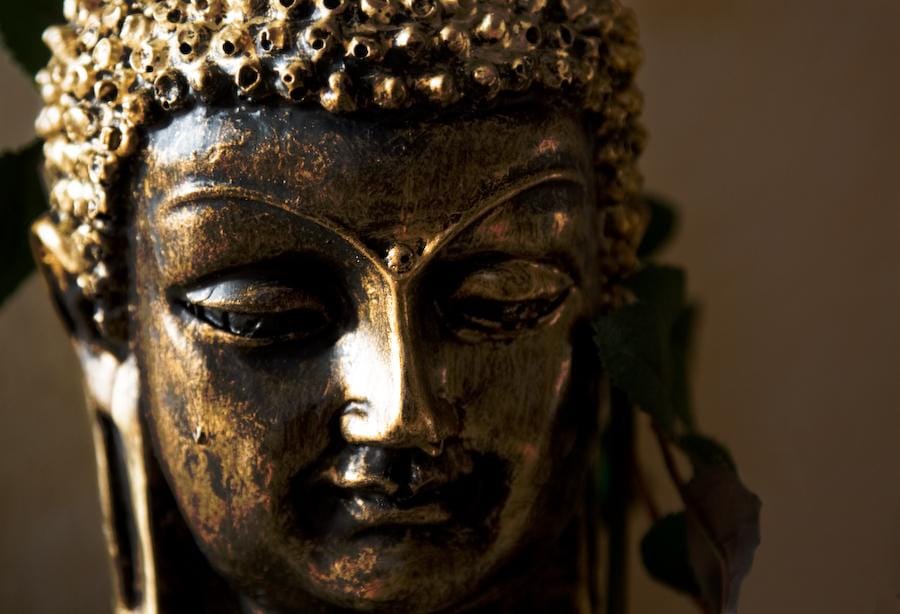Q: I was born male, but after many years of confusion, I’ve come to the conclusion that I’m actually a transgender woman and I’m now seeking sex-reassignment surgery. As a Buddhist, I feel conflicted by the teachings on no-self and this unshakable feeling that there is a deep, hidden truth about me that I need to express. Am I wrong to embrace this sense of true self?
Sallie Jiko Tisdale: The emptiness of the self is part of what we face in practice. It is this very emptiness that allows us to work with our karma, clarify our lives, and awaken to the truth. But becoming your most authentic self is part of it too. The Buddha advised his followers to be indifferent to their bodies, but he also taught people to use their bodies as the tools of awakening. The Buddha’s own story teaches us that extremes are not conducive to real understanding. It does us no good to be miserable, unhealthy, or at war with ourselves.
As human beings, we are always broken in some way; our existence is marked by ignorance and confusion. Over time, we come to accept the karma of our birth, the gifts and challenges we have inherited. We strive to become whole, to find those parts of the self that need attention and support. We become willing not only to accept our karma but also to dance with it—to risk vulnerability, to examine our tender places, to be uncomfortable, and finally to stand up for ourselves and say, “This is who I am.”
 Narayan Helen Liebenson, Andrew Holocek, Sallie Jiko Tisdale. Photos by Marry Lang, Bob Carmichael, and Kim Campbell.
Narayan Helen Liebenson, Andrew Holocek, Sallie Jiko Tisdale. Photos by Marry Lang, Bob Carmichael, and Kim Campbell.As you say, you sense a “deep, hidden truth” about yourself and you need to express it. Everyone feels this way, I think. To one extent or another, we are longing to be seen and recognized as we secretly know ourselves to be. We struggle to find congruence between our inner experience and our outer relationships. So we work to bring the physical body and our appearance into congruence with the felt self—through our clothing, how we wear our hair, how we speak and stand, whom we choose as friends and peers.
Each of us has genitals, but they do not determine gender. Our gender—male, female, or intersexual—includes such disparate forces as genetics, family, and culture. The source of transgender identity is mysterious because we don’t understand how all these forces work together. But the incongruence you feel is not that uncommon. I would advise only that this felt identity is not your “true self.” The Buddhist true self is much more than our phenomenal existence. That self is not dependent on the physical body, intellect, spiritual practice, or relationship; it cannot be obstructed by anything phenomenal.
What you describe is what I think of as the “authentic self,” the urge to live in this world in the most whole way possible. For some of us, it might mean braces or a different haircut; for others, it may mean monastic robes and a shaved head. For a certain number of people, it will require gender-reassignment surgery. So yes, embrace your authentic self completely. If that means you need to make some practical adjustments, you will have plenty of company.
Narayan Helen Liebenson: The teaching of anatta does not say there is no self; it states that nothing conditional can be pointed to as being who or what you are. Given that no aspect of being can be identified with in any kind of continuous, independent sense, to me, teachings of compassion and loving-kindness can be your north star.
You don’t mention pain, but it’s hard to imagine that you’ve made this decision lightly and without any degree of angst. This pull you feel to live as you know yourself to be is a matching of your inner reality with the outer situation in which you live. What could be wrong with that? Accepting yourself as you are and being a true friend to yourself is an essential aspect of this path of inner liberation.
I see the problem as the conflict between what you know and what you have heard in the teachings. The question is, by manifesting differently in this world, can you live the teachings more fully? I would assume so, because after surgery, you will not live in ongoing conflict or feel a sense of separation between the gender you know yourself to be and the way others relate to you. Free from the idea of a fixed, continuous, independent “I,” there’s tremendous freedom possible in the flowering and flexibility of all things.
Andrew Holecek: My heart goes out to you. Matters of identity at any level are wrenching. But fortunately, the challenges are also in direct proportion to the potential for transformation—the greater the obstacle, the greater the opportunity. Your question is a marvelous opportunity to explore the relationship between absolute and relative truth, both of which need to be honored to fully address the issues you express. We find our way to the absolute through the relative, not by dismissing it—your courage in facing yourself so honestly at this relative level can take you far along the path.
To become a buddha (the absolute), we first have to become fully human (the relative). We then might discover that to be fully human is to be a buddha (the inseparability of relative and absolute). One thread that connects these two stations along the path is maitri, or loving-kindness toward oneself. So first and foremost, be kind to yourself, which in itself is transformative.
If the Buddha were here, he would want you to be happy. If becoming a woman truly makes you happy, he would encourage that. But he might also suggest that your longing for change points to something even deeper, as your question itself implies. So while it’s important to honor the relative, the strength of Buddhism lies in its teachings on the absolute. That’s the perspective I want to emphasize.
Your question suggests to me that you’re homesick for the absolute, and that homesickness is expressing itself in this relative way. This is not to dismiss your desire to find a true form but to help you put it in perspective. Sex reassignment could be just one step toward the recovery of the “true self” you’re looking for.
In many ways, this is the central inquiry of the spiritual journey. Ramana Maharshi developed an entire path based on the question “Who am I?” Not knowing the answer is the source of all our suffering; discovering it is the basis of our liberation.
Until we wake up to who we really are, we’re all victims of a primordial identity theft. You originally thought you were a man, only to find you’re actually a woman. Good for you. You’re looking within and trying to recover a truer identity. But the finite cannot contain the infinite; if we identify with that form, it will always feel like something is missing.
How can you work with the absolute level? Even as you move forward with your surgery, when the thought comes up that you’re a woman—or a man—try to identify with the space between those thoughts. Let those thoughts come and go like clouds floating through the open sky. You’re the sky. Take refuge in that. From that open perspective, you will relate to whatever arises in your heart and mind properly and no longer lose yourself in any form. So abandon even the concept that “My thoughts are me.”
Take your unshakeable feeling that there is a deeper truth and use it to propel you toward that truth. That feeling is beautiful. Let your choice and your questions serve as catalysts for deeper investigation. Once you properly identify yourself as no-self, you will naturally express that selflessness as compassion and fulfill your longing—in any form. That’s when you’ll really shine.
Narayan Helen Liebenson is a guiding teacher at Cambridge Insight Meditation Center.
Sallie Jiko Tisdale is a lay dharma teacher at Dharma Rain Zen Center in Portland, Oregon.

